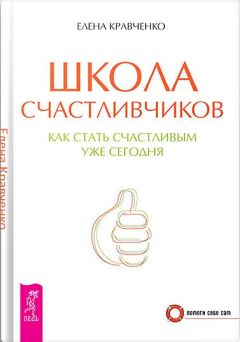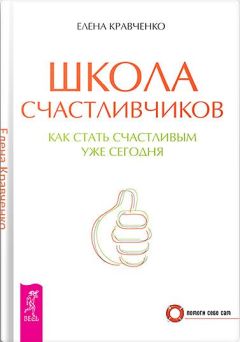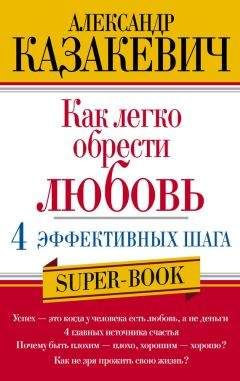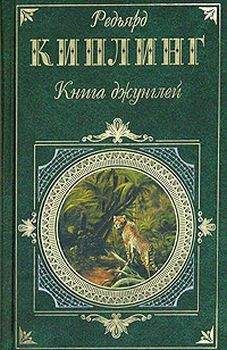Редьярд Киплинг - Английский с Редьярдом Киплингом. Рикки-Тикки-Тави / Rudyard Kipling. Rikki-Tikki-Tavi
“Umph!” said Big Toomai. “Thou art a boy, and as wild as a buffalo-calf. This running up and down among the hills is not the best Government service. I am getting old, and I do not love wild elephants. Give me brick elephant lines, one stall to each elephant, and big stumps to tie them safely, and flat, broad roads to exercise upon, instead of this come-and-go camping. Aha, the Cawnpore barracks were good. There was a bazaar close by, and only three hours’ work a day.”
Little Toomai remembered the Cawnpore elephant-lines and said nothing (Маленький Тумаи помнил Кавнапурские слоновые загоны и ничего не сказал). He very much preferred the camp life (ему гораздо больше нравилась лагерная жизнь; to prefer – предпочитать), and hated those broad, flat roads (и он ненавидел эти широкие плоские дороги), with the daily grubbing for grass in the forage reserve (с ежедневным выкапыванием травы в фуражных заповедниках; to grub – выкапывать, выкорчевывать; reserve – запас, резерв; заповедник, резервация), and the long hours when there was nothing to do except to watch Kala Nag fidgeting in his pickets (и долгие часы, когда было нечего делать, кроме как наблюдать, как Кала Наг беспокойно двигается в своем стойле; to fidget – проявлять нетерпение, беспокойно двигаться; picket – кол, штакетина).
Little Toomai remembered the Cawnpore elephant-lines and said nothing. He very much preferred the camp life, and hated those broad, flat roads, with the daily grubbing for grass in the forage reserve, and the long hours when there was nothing to do except to watch Kala Nag fidgeting in his pickets.
What Little Toomai liked was to scramble up bridle paths that only an elephant could take (то, что любил Маленький Тумаи, – это пробираться по узким тропинкам, которые только слон мог преодолеть = доступным только слону; to scramble – продираться, пробираться с трудом); the dip into the valley below (погружение в долину внизу; to dip – макать, окунать; dip – краткое погружение, ныряние); the glimpses of the wild elephants browsing miles away (мелькание диких слонов, пасущихся за /много/ миль /от него/; to glimpse – мерцать, слабо светиться; glimpse – проблеск, мелькание; to browse – объедать, ощипывать листья, пастись); the rush of the frightened pig and peacock under Kala Nag’s feet (суету испуганного кабана и павлина под ногами Кала Нага; rush – бросок, натиск; спешка, суета; pig – свинья; боров; кабан); the blinding warm rains (слепящие теплые дожди; to blind – ослеплять; blind – слепой), when all the hills and valleys smoked (когда дымятся все горы и долины; to smoke – дымить/ся/; smoke – дым); the beautiful misty mornings when nobody knew where they would camp that night (прекрасные туманные утра, когда никто не знает, где они разобьют лагерь = остановятся на ночь; to camp – располагаться лагерем); the steady, cautious drive of the wild elephants (равномерный, осторожный гон диких слонов; drive – езда; преследование, гон), and the mad rush and blaze and hullabaloo of the last night’s drive (и безумный натиск, яркое пламя и гвалт последнего ночного гона), when the elephants poured into the stockade like boulders in a landslide (когда слоны потоком вливаются в загон, точно валуны во /время/ обвала; to pour – лить/ся/; stockade – забор, ограждение; загон для скота), found that they could not get out (и понимая, что не смогут выбраться; to find – находить, обнаруживать; зд.: понять; to get out – выйти, выбраться), and flung themselves at the heavy posts only to be driven back by yells and flaring torches and volleys of blank cartridge (кидаются на тяжелые /врытые/ столбы только для того, чтобы быть отогнанными назад криками, пылающими факелами и залпами холостых зарядов; to fling – бросаться, кидаться; blank – белый, пустой; холостой /выстрел, заряд/).
What Little Toomai liked was to scramble up bridle paths that only an elephant could take; the dip into the valley below; the glimpses of the wild elephants browsing miles away; the rush of the frightened pig and peacock under Kala Nag’s feet; the blinding warm rains, when all the hills and valleys smoked; the beautiful misty mornings when nobody knew where they would camp that night; the steady, cautious drive of the wild elephants, and the mad rush and blaze and hullabaloo of the last night’s drive, when the elephants poured into the stockade like boulders in a landslide, found that they could not get out, and flung themselves at the heavy posts only to be driven back by yells and flaring torches and volleys of blank cartridge.
Even a little boy could be of use there (даже маленький мальчик может быть там полезен; use – использование; польза, толк), and Toomai was as useful as three boys (а Тумаи был полезен, как /целых/ три мальчика; useful – полезный). He would get his torch and wave it (он брал свой факел, размахивал им; to get – получить; брать; to wave – совершать волнообразные движения; размахивать, махать), and yell with the best (и кричал изо всех сил; to yell – вопить, кричать; best – лучший). But the really good time came when the driving out began (но по-настоящему хорошее = веселое время наступало, когда слонов начинали выгонять /из-за ограды/), and the Keddah (и кеддах) – that is, the stockade (то есть загон) – looked like a picture of the end of the world (выглядел как картина конца света = превращался в…), and men had to make signs to one another (и людям приходилось делать друг другу знаки = переговариваться знаками), because they could not hear themselves speak (потому что они не могли = были не в состоянии слышать себя говорящими = слышать своих голосов). Then Little Toomai would climb up to the top of one of the quivering stockade posts (потом Маленький Тумаи взбирался на верхушку одного из шатающихся столбов загона; to climb – взбираться, карабкаться; to quiver – дрожать мелкой дрожью), his sun-bleached brown hair flying loose all over his shoulders (его выгоревшие на солнце коричневые волосы разлетались, падая на плечи; to bleach – белить, обесцвечивать; выгореть /на солнце/; to fly – летать; loose – свободный; свободно), and he looking like a goblin in the torch-light (и он был похож на гоблина = лесного духа в свете факелов; to look like – быть похожим; light – свет).
Even a little boy could be of use there, and Toomai was as useful as three boys. He would get his torch and wave it, and yell with the best. But the really good time came when the driving out began, and the Keddah – that is, the stockade – looked like a picture of the end of the world, and men had to make signs to one another, because they could not hear themselves speak. Then Little Toomai would climb up to the top of one of the quivering stockade posts, his sun-bleached brown hair flying loose all over his shoulders, and he looking like a goblin in the torch-light.
And as soon as there was a lull you could hear his high-pitched yells of encouragement to Kala Nag (едва наступало затишье, вы могли бы услышать его звонкие пронзительные крики поощрения Кала Нага; lull – временное затишье; временное успокоение; перерыв; to pitch – давать основной тон, придавать определенную высоту /голосу/; high-pitched – высокий, звонкий; yell – пронзительный крик; to encourage – ободрять; поощрять), above the trumpeting and crashing, and snapping of ropes, and groans of the tethered elephants (над = заглушавшие рев, грохот, треск /рвущихся/ веревок и стоны привязанных слонов; to trumpet – трубить; реветь /о слоне/; to crash – рушиться с грохотом; to snap – щелкать, лязгать, трещать; to tether – привязать /пасущееся животное/). “Mael, mael, Kala Nag (маэл, маэл, Кала Наг)! (Go on, go on, Black Snake (вперед, вперед, Черный Змей)!) Dant do (дант до)! (Give him the tusk (бивнем его: «дай ему бивень»)!) Somalo (сомало)! Somalo (сомало)! (Careful, careful (осторожней, осторожней)!) Maro (маро)! Mar (мар)! (Hit him, hit him (бей его, бей его)!) Mind the post (берегись столба = осторожно, столб; to mind – заботиться /о ком-либо, чем-либо/; беречься, остерегаться)! Arre (арре)! Arre (арре)! Hai (хай)! Yai (йай)! Kya-a-ah (киа-а-х)!” he would shout (кричал он), and the big fight between Kala Nag and the wild elephant would sway to and fro across the Keddah (и большой бой между Кала Нагом и диким слоном = дравшиеся Кала Наг и дикий слон раскачивались во все стороны, пересекая кеддах; to sway – качать/ся/, колебать/ся/; across – поперек; через), and the old elephant catchers would wipe the sweat out of their eyes (а старые ловцы слонов вытирали пот с глаз = попавший им в глаза; to wipe – вытирать, утирать), and find time to nod to Little Toomai wriggling with joy on the top of the posts (находя время кивать головой Маленькому Тумаи, извивающемуся от радости на верхушке столба; to nod – кивнуть головой; to wriggle – извивать/ся/, изгибать/ся/).
And as soon as there was a lull you could hear his high-pitched yells of encouragement to Kala Nag, above the trumpeting and crashing, and snapping of ropes, and groans of the tethered elephants. “Mael, mael, Kala Nag! (Go on, go on, Black Snake!) Dant do! (Give him the tusk!) Somalo! Somalo! (Careful, careful!) Maro! Mar! (Hit him, hit him!) Mind the post! Arre! Arre! Hai! Yai! Kya-a-ah!” he would shout, and the big fight between Kala Nag and the wild elephant would sway to and fro across the Keddah, and the old elephant catchers would wipe the sweat out of their eyes, and find time to nod to Little Toomai wriggling with joy on the top of the posts.
He did more than wriggle (он не только извивался: «он делал больше, чем извивался»). One night he slid down from the post and slipped in between the elephants and threw up the loose end of a rope (однажды ночью он соскользнул вниз со столба, прошмыгнул между слонами и бросил свободный конец веревки; to slide – скользить, двигаться плавно; to slip – скользить, плавно передвигаться; проскользнуть, прошмыгнуть; to throw – бросать, кидать), which had dropped (который упал; to drop – капать; падать), to a driver who was trying to get a purchase on the leg of a kicking young calf (загонщику, который пытался заполучить ногу пинающегося слоненка; purchase – зд.: точка опоры; calf – теленок; детеныш /оленя, слона, кита/) (calves always give more trouble than full-grown animals (слонята всегда доставляют больше хлопот, чем взрослые животные)). Kala Nag saw him (Кала Наг увидел его), caught him in his trunk (поймал его хоботом; to catch), and handed him up to Big Toomai (и передал Большому Тумаи; to hand – дотрагиваться, брать рукой; передавать, вручать), who slapped him then and there, and put him back on the post (который тут же отшлепал /сына/ и посадил обратно на столб; to slap – хлопать, шлепать; then and there – в этот момент, тотчас же, на месте, тут же).




